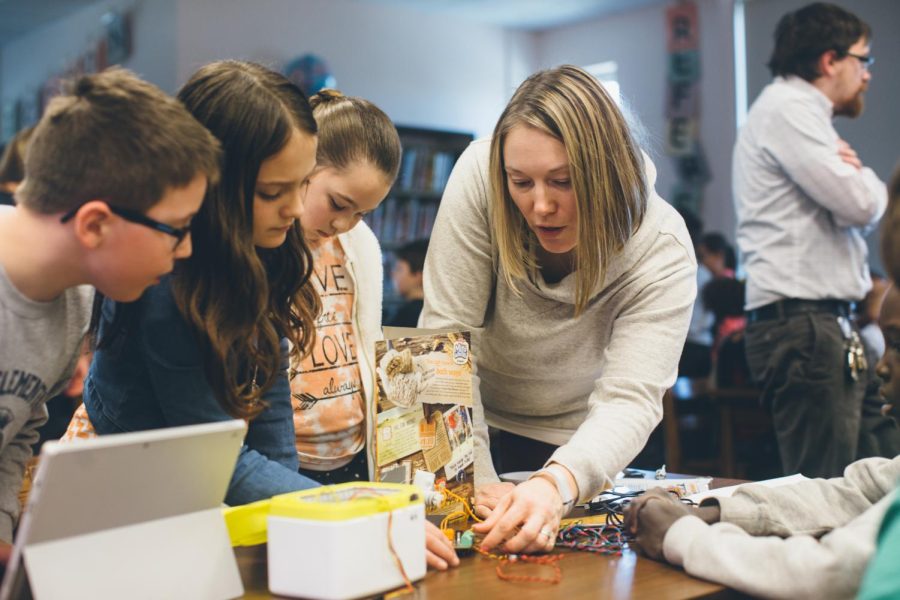Over 4.5 million students in the U.S. took an AP Exam this year. The standardized test has become synonymous with students that care about their future and are driven. But one thing that isn’t standardized is how these classes are taught throughout the country. Not every student is treated the same, and not every class is the same. Some kids can do what they want, while others are relegated to putting their phones away before class. This disparity in treatment is a step in the wrong direction…but the good news is that we can still improve.
At the end of the day, kids should have free choice over what they do in these advanced classes.
The difference in how classes are taught has always been a topic of debate however. In 2010, the Common Core standards were released and accepted by 45 states as a way to standardize the curriculum in schools. The approach was very top down heavy, which minimized the ability of teachers to recognize differences in their students. Allowing students to choose what they do in class is a much better method of teaching.
Firstly, AP classes are specifically designed to model college classes, which is why most colleges accept scores of 3 or higher for credits. The Princeton Review claims “Advanced Placement classes show admissions officers that you’re ready for college-level work. Admissions counselors consistently tell us that good grades and academic rigor are the most important factors when schools evaluate applications.” Going from a very structured environment in high school to loads of free time at a university can be startling, so giving students the chance to think for themselves is important and should be prioritized.
Clearly, if students are taking AP classes, then they are ready to make that jump. Shouldn’t they be able to understand the way they learn best?
The National Institution for Children posits: “the AP classroom-and-exam experience, besides almost always challenging and stimulating students, actually confers skills and study habits that prepare them for college and beyond. Its courses can be an antidote to senior-year boredom, pushing able pupils to their academic limit and providing a source of stimulation and rigor that they may not find in their other courses.” It’s obvious that these kids know what they’re doing. Why not give them the chance to make mistakes while they’re in high school. If someone has a late night, and thinks a test in 3rd period AP Calculus is more important than their 2nd period AP Government class, why shouldn’t that student choose to prioritize their other test?
This begs the question though, why are students in advanced classes still being micromanaged by teachers?
There are too many stories of teachers making students put phones in a bin or completely away before class. While it is understandable to do this for a test or quiz, these types of restrictions only result in resentment from students. These kids are able to manage their time…they wouldn’t be in the class if they couldn’t. The best solution to this is just to let the kids be on their phones or doing what they want. It’s a student’s responsibility to do well in school.
Responsible use of phones doesn’t have to always result in constant usage of a phone during every class of the week, but what’s the issue if that kid has a grade in the class that they’re happy with? Marzano & Picketing (2003) asserts that most teachers talk too much, help too much, and are seen too much. They claim that micromanagement breeds needy, demanding and dependent students.
Why not let kids learn in an environment where the teacher assists when needed in advanced classes, instead of the alternative- an overbearing, anxious, and controlling teacher who the students don’t respect.
The main argument against this is simply that school is a place to learn, and that students should learn to respect the teacher’s preferred way of teaching, and to simply put their phone away. But why does everything have to revolve around teachers? After all, students are the future of our country. Shouldn’t we be teaching ourselves to think for ourselves and learn to make mistakes in a semi-controlled environment? If phones aren’t being used for the wrong reasons (cheating, cyberbullying, etc.), then why bother to try to manage them.
Kids in advanced classes tend to have a better understanding of themselves and how they learn best…and even if they don’t, by letting them do what they want in these classes we are letting them learn from any mistakes they make. And isn’t that the end goal of school in general? To learn about ourselves? To make mistakes and learn from them?


























